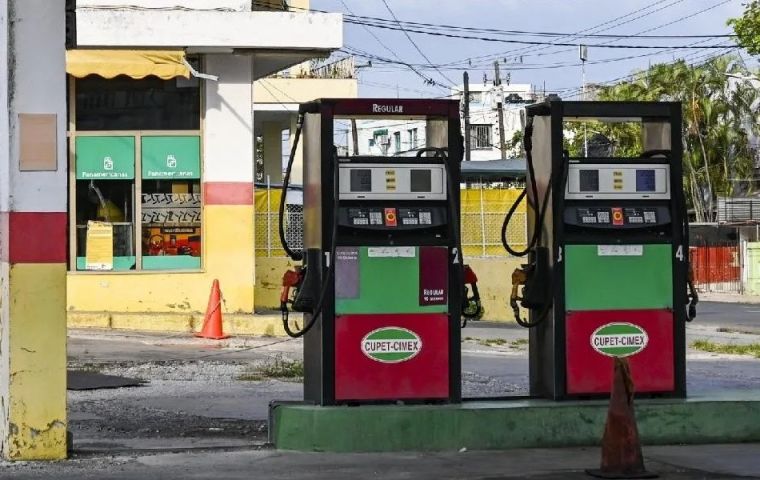MercoPress. South Atlantic News Agency
No Labor Day parade in Cuba due to fuel shortage
 Díaz-Canel explained that the situation responds to the “non-compliance” of supplying countries that are also going through a “complex energy situation.”
Díaz-Canel explained that the situation responds to the “non-compliance” of supplying countries that are also going through a “complex energy situation.” Cuban authorities had to cancel the traditional May 1 Labor Day Revolution Square parade due to the shortage of fuel, it was announced Tuesday. Smaller events will be staged instead in “communities, labor, and student centers for several days and parades in the country's municipalities,” it was explained. The main event will take place in Havana's Malecon.
This is the first time since the 1959 revolution that the May 1 parade is suspended for economic reasons. In 2020 and 2021 the celebration was cancelled due to the Covid-19 pandemic.
The Cuban government reported last week that fuel supply problems would last at least until May, so it would prioritize vital transportation services. The fuel supply crisis also forced the cancellation of classes in at least five universities in the country this week.
The first government statement on the fuel shortage was made a week earlier by President Miguel Díaz-Canel, who stated that the situation responds to the “non-compliance” of the supplying countries that are also going through a “complex energy situation”.
Starting this week, classes at several universities are online only, to avoid transport needs.
On Sunday, a concert of the Cuban National Symphony Orchestra in the main theater of the capital was also suspended due to the lack of fuel. In Cuba, there are very few electric vehicles and there are no liquefied gas vehicles.
Díaz-Canel indicated that in the country some 500 or 600 tons of gasoline are used daily, of which only 400 tons have been dispatched.
Last week in Havana, a 40-liter limit was set for each vehicle. Petrol stations were organized by category according to the type of vehicles: private, state or private companies, diplomats, and tourists, the latter two having priority.




Top Comments
Disclaimer & comment rulesCommenting for this story is now closed.
If you have a Facebook account, become a fan and comment on our Facebook Page!